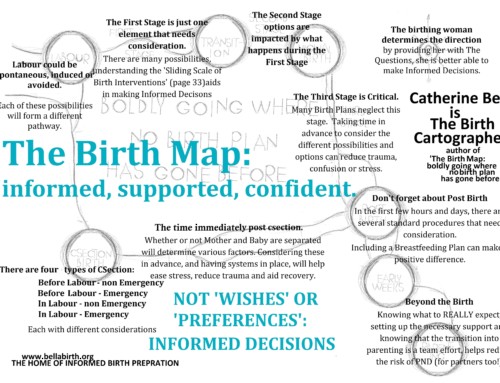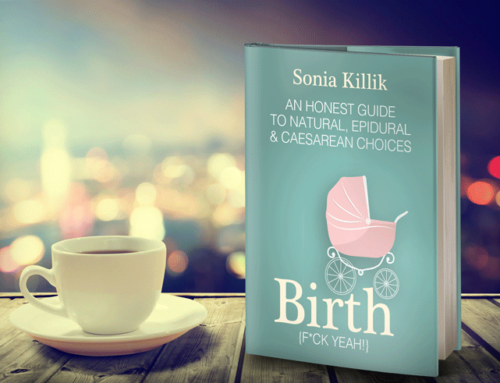By Tracy G. Cassels
The act of eating one’s placenta after birth, placentophagia, seems to be becoming more popular than in previous years. Though many women cite hormonal or emotional benefits to ingesting the placenta, very few are aware of the science looking at this practice. Who does this? Why? And does science support the practice?
Placentophagia in Other Animals
What most women refer to when deciding to engage in placentophagia is that almost all placental animals do it All of these are possible causes of placentophagia in animals, and depending on the research, it may mean it is relevant or not for humans. In a review of the research examining these six hypotheses, Krystal and colleagues immediately dismiss numbers 5 and 6 due to the evidence of animal behaviour that would contradict this[3]. However, of the remaining, none explained the behaviour for all groups of animals who partake in this, suggesting that there are multiple reasons animals eat the placenta. For example, if an animal eats the placenta for the nutritional value, it also serves to reduce odours that might attract predators, even if that reduction is not the actual cause of the behaviour. As such, it seems that the first four hypotheses may be seen as possible causes for groups of animals, even though not all will apply to each animal. Importantly, though, they mention some of the effect that may reinforce the behaviour as beneficial to animals. That is, although these are secondary consequences, they are benefits that also reinforce the act of placentophagia: Given the benefits in terms of causes and consequences, it shouldn’t be surprising to see humans attempt to gain these benefits. But do we? Placentophagia in Humans 1. People believe there are general health benefits; 2. People believe there are specific health benefits; 3. The idea that it is “natural” given that animals do it and we are animals.[3]
Does evidence support any of these reasons as being reasons why people should engage in placentophagia? It’s hard to say because there is so very little well-done research on it. Though there are studies that purport things like benefits to breastfeeding[11] (and for a review, see [1]), the studies are not of a quality that allows for conclusions to be made. Research on animals has found health benefits, though (as mentioned above) though there are caveats to that as well. For example, the beneficial effects of the opioids wane if the placenta is left at room temperature for 24 hours, but if frozen immediately, the effects are preserved[3]. Again, though, these may not apply to human placentas and we don’t even quite know where to begin to measure the effects of placentophagia as we have no idea what part of the placenta might be helpful, when does it have to be ingested, does the placenta need to be frozen, and so on. And perhaps most importantly, because there is no history of placentophagia in humans, we also have no baseline to compare it to. The question we must be asking now is, “Why isn’t placentophagia common in humans?” After all, if we accept that we evolved from mammals, why did the practice disappear? (And if you don’t accept we evolved from mammals, perhaps it’s still an interesting question, but not as evolutionarily pressing.) One possibility is culture[3]. One of the main reasons for placentophagia in animals is pain reduction via the increase in opioids, but what if the lack of pain reduction is what allowed other individuals, mainly women, to help the labouring mother before and after, strengthening social bonds between the community members. This would also result in the transmission of information about birth between women. And of course a second issue may be the view that placentophagia is a form of cannibalism, which was reported in a cross-cultural survey on the practice[10]. Furthermore, as humans became bipedal, we know that birth became safer when assisted versus unassisted (and remember this is historical assisted which means the inclusion of any other person there, not a medical professional)[12], any aspect of the birth that increased the likelihood of help would further serve the species, and increased pain would be one thing that would summon others. As a slight aside, this raises an interesting question about why we are seeing a rise in placentophagia in modern, Western worlds: We are lacking the usual support that historically women had post-birth, might this be the reason women are turning to something that may offer pain relief and general health benefits, particularly for post-partum depression (a condition we know is linked to a reduction in support[13])? Is this reduction in a village to support families driving the rise in animalistic practices in hopes they will have the same effect for us humans? What does it mean for us as a species? Just some thoughts to consider. Conclusions Well, we know that placentophagia is not common in humans, but rather a relatively new phenomenon in terms of any widespread use. We have no idea if there are health benefits outside of the anecdotes of those who partake in it. So far there does not seem to be reason to believe it is dangerous, but that is a possibility for why it is not common in humans[3] (though our understanding of culture would suggest it would be widespread knowledge if, in fact, it posed a danger). Should you do it? It’s a personal decision. There is nothing suggesting you will be lacking if you don’t or receiving benefits if you do. Although potentially, the cultural possibility for cessation of this act may suggest that people do receive some benefits if they are not in a caring, supportive community, especially with the increased rates of post-partum depression we see today. But that’s pure speculation by yours truly and requires more research. At the end of the day, whatever makes you happy. Did you ingest your placenta? Did you find it helped your or did you find no effect? [Image Credit: One Bode]
[1] Kristal MB. Placentophagia: a biobehavioral enigma. Neuroscience and Biobehavioral Reviews 1980; 4:141-50. [2] Lehrman DS. Hormonal regulation of parental behavior in birds and infrahuman mammals. In Sex and internal secretions, vol 2, ed WC Young, 1268-1382. Baltimore: Williams and Wilkins, 1961. [3] Kristal MB, DiPirro JM, Thompson AC. Placentophagia in humans and nonhuman mammals: causes and consequences. Ecology of Food and Nutrition 2012; 51: 177-97. [4] Kristal MB, Whitney JF, Peters LC. Placenta on pups’ skin accelerates onset of maternal behavior in nonpregnant rats. Animal Behavior 1981; 29: 81-5. [5] Kristal MB. The biopsychology of maternal behavior in nonhuman mammals. ILAR Journal 2009; 50: 51-63. [6] Kristal MB, Thompson AB, Grishkat HL. Placenta ingestion enhances opiate analgesia in rats. Physiology & Behavior 1985; 35: 481-6. [7] Kristal MB, Thompson AB, Abbott P. Ingestion of amniotic fluid enhances opiate analgesia in rats. Physiology & Behavior 1986; 38: 809-15. [8] Rubin BS, Bridges RS. Disruption of ongoing maternal responsiveness in rats by central administration of morphine sulfate. Brain Research 1984; 307: 91-7. [9] Thompson AC, Kristal MB. Opioid stimulation in the ventral tegmental area facilitates the onset of maternal behavior in rats. Brain Research 1996; 743: 184-201. [10] Young SM, Benyshek DC. In search of human placentophagy: a cross-cultural survey of human placenta consumption, disposal practices, and cultural beliefs. Ecology of Food and Nutrition 2010; 49: 467-84. [11] Soykova-Pachnerova E, Brutar V, Golova B, Zvolska E. Placenta as a lactogogon. Gynaecologia 1954; 138: 617-27. [12] Rosenberg K, Trevathan W. Birth, obstetrics and human evolution. British Journal of Obstetrics and Gynecology 2002; 109: 1199-206. [13] Hagen EH. The functions of postpartum depression. Evolution and Human Behavior 1999; 20: 325-59.
 Let us first be clear: Placentophagia is an exception in human cultures despite being a norm in mammals. There is no evidence that this practice was ever widespread or is routinely practices in any culture, including small hunter-gatherer tribes, remote cultures, etc.[1][10]. In fact, the modern emergence of placentophagia seems to be the most widespread practice uncovered for humans, though it has appeared in the past in Chinese medicine (though not as widespread as some seem to believe) and some smaller cultures. So why do people do it? Research seems to suggest three main reasons:
Let us first be clear: Placentophagia is an exception in human cultures despite being a norm in mammals. There is no evidence that this practice was ever widespread or is routinely practices in any culture, including small hunter-gatherer tribes, remote cultures, etc.[1][10]. In fact, the modern emergence of placentophagia seems to be the most widespread practice uncovered for humans, though it has appeared in the past in Chinese medicine (though not as widespread as some seem to believe) and some smaller cultures. So why do people do it? Research seems to suggest three main reasons:






I’ve read that the only real evidence that exists re. placentophagia in the past suggests that placentas were most likely burnt, not consumed. Since we had/have no real predators we would have no need to ‘dispose of the evidence’ like other mammals.
I must admit I’m highly sceptical about the current surge of placenta consumption, especially when it involves highly expensive elaborate encapsulation rituals. The fact that such a ritual exists to me makes it seem like a very, very good placebo effect, but one women pay through the nose for.
I’m not disputing that eating very fresh, raw placenta has health benefits, I’m sure it does (but I’ve not even seen enough evidence of that to convince me) and it’s something I might give a go if I have another baby out of curiosity, but dehydrating placentas and adding herbs in my mind is not the same.
Sarah, I think definitely eating it fresh, raw or cooked, would be beneficial health wise as it’s an organ meat. So insofar as organ meat is healthy, it should be too. But you could get those same benefits eating organ meat from another animal too.
And yes, historically there has been burning, planting/burying, etc., but only very rarely, consumption.
I agree re: the cost. I don’t know that the way it’s being done is beneficial, especially (as I pointed out), we know the opioids’ effect is gone after 24 hours at room temperature in other animals. The same would probably apply to us, if we even still have the opioid effects!
Yes very true, hadn’t thought of it like that re. organ meat! If there are extra benefits over that then all well and good and it’s free to just eat a bit of your own raw, in a smoothie say.
It’s when the big sums of money start getting involved (£150 plus in the UK!) to encapsulate that I start getting uncomfortable. With that much vested motivation and the elaborate ritual of it you are almost guaranteed a pretty spectacular placebo effect. If it was only £30 or similar I wouldn’t feel so uncomfortable, but ouch that’s a lot of money to pay if it is only placebo – far better to get a homeopathic tincture made for only £30 if you’re happy it might only be working as a placebo!
I really do seem to be in a minority though – so many people I know (who are usually pretty sensible about science!) are raving about it over here. BTW I would have replied on Facebook but they’ve banned me for posting a picture of an African tribal lady with one breast out!
I did, but I couldn’t tell if it made a difference because I didn’t know what to compare my experience to. It didn’t hurt though.
The warding off predators theory of animals eating their placenta is absurd. The air, ground, nest, mother, and offspring will all still smell like blood after birth, and the smell is what attracts predators, not the placenta. Also, I totally get the carnivorous tendencies after birth, I am still craving meat all the time at 6 weeks PP.
Second, I did small amounts of placenta for the first few weeks and I did not experience any PPD, had no problems breastfeeding, had stable energy, no problems sleeping, and my uterus shrunk in a day. Now, I cant say definitively if that is because of the placenta or if that was just the luck of the draw for me, but I figured it couldn’t hurt to stack the deck in my favor..
I had it capsules made and I believe it made my milk come in in abundance. I started taking the capsules 2 weeks post-partum and I had a sudden surge in the amount of milk I was producing, I was more engorged after starting the capsules than when my milk first came in on day 4 post-partum.
I couldn’t say I noticed if it affected my hormones/mood as it claims to do. I took it a couple times in the evening and found that I was wide-awake by around 11p.m., which may mean it gives you energy (another claimed benefit). It may have been a coincidence but I just take one capsule in the morning now.
If you are paying someone to handle your organs I wouldn’t ‘trust’ someone who charged a low price. I paid £150 for the service and I think that is a lot of money but a reasonable price for this type of service. How much would you charge to handle someone else’s organs? I believe there is a ‘do it yourself’ at home kit for around £35 but I couldn’t comment as to how good this is. Who would have time for that with a new baby around?
I did it out of interest but not sure I will do it next time, mostly because of the cost. If a mum had milk production problems, it might be an idea to try for subsequent pregnancies. I think there is definitely a placebo at work with these pills (probably with all medications and supplements) but the placebo effect is a valid form of ‘healing,’ so if you are willing to part with the £150 then why not?
I planted my son’s under a black mulberry tree, since consuming it, as you point out, is not the human norm, and I figured, unless I ate it raw (and promptly), I might as well be eating a cooked sheep’s heart or something instead.
We’ve kept goats, sheep, and now 1 cow in the past few years, and interestingly, contrary to the rumours in some circles, for the most part I’ve observed they actually aren’t interested in their placentas (despite having plenty of opportunity).
Domesticated animals wouldn’t be too interested (not all) in eating their placenta if they know they have someone feeding them everyday.
I believe the theory is based on wild animals with no or little contact with humans that can provide them with food. I also noticed a strong craving to meat while pregnant and after having my son. I believe this is because of the amount of extra blood you have to produce while pregnant and the massive amount of blood you lose postpartum that your body & brain ask you to eat more protein and iron and what better that meat? 🙂 This just makes so much sense to me. I’m still breastfeeding my soon to be 11 month old and I love eating meat. It makes me feel soooo good 🙂
Great post, but I was disappointed not to see this very recent article referenced: http://www.tandfonline.com/doi/abs/10.1080/03670244.2012.661349
It hypothesizes that because the placenta filters out toxins, it may actually be unhealthy to eat it. I’ve only read the abstract though, I don’t have access to the full article.
There are various hypotheses about it and the potential dangers; however, as pointed out in the piece and by Krystal’s work, there isn’t evolutionary evidence it’s *dangerous*. If it were, it should be something that we see strong cultural information on – it should be passed on. But it’s always possible!
[…] Placentophagia is common to all land mammals except camels and humans. […]